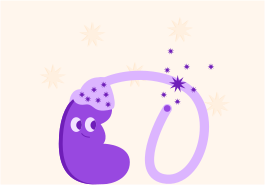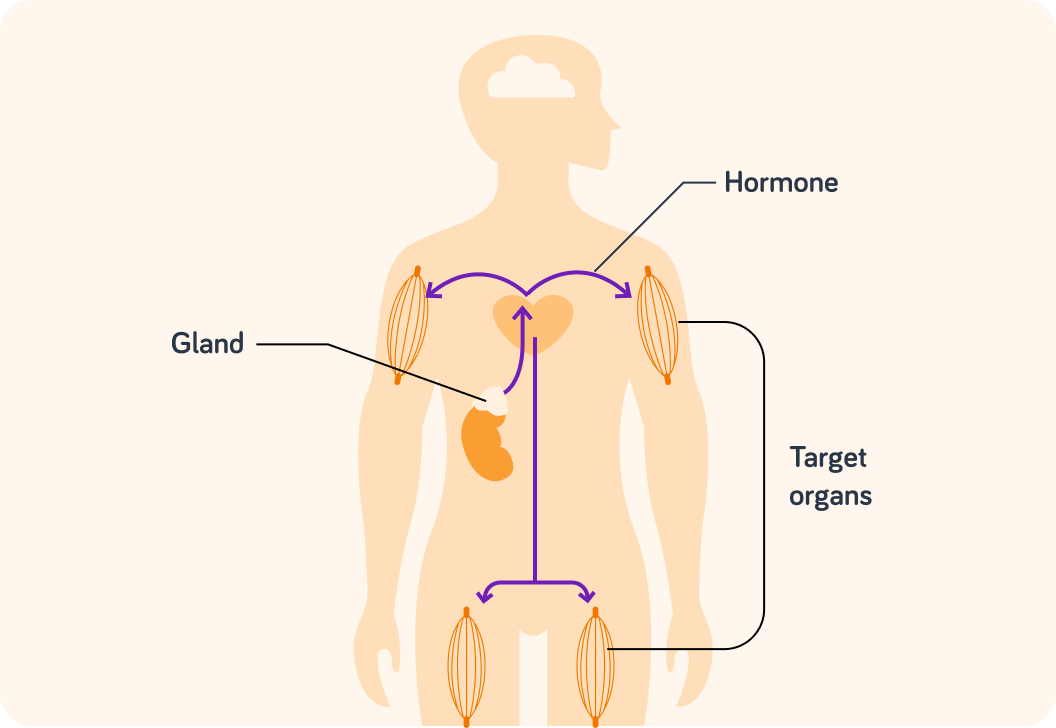YOU ARE LEARNING:
Endocrine System

Endocrine System
The endocrine system is composed of glands that secrete hormones into the bloodstream, which target organs to produce specific effects.
The ability of the body to control and coordinate its actions and functions is vital to its survival! If a person is too hot, for example, it is important that the body responds in order to cool down. It can do that by sweating.
Movement is the most obvious form of coordination and control. If someone wants to move their arm, which body system controls this movement?

We have all experienced being frightened. How might we respond to a sudden shock, like someone jumping out on us, for a joke? Pick all the options you think are correct.

You can select multiple answers
The responses to being frightened are not controlled by our nervous system. Rather, it is a response to a chemical released into the blood called adrenaline. Adrenaline is a type of hormone.
The image shows the basic function of the endocrine system.
This example shows what happens when we get a fright. The gland (the adrenal gland) produces a hormone (adrenaline). This passes into the blood. When it gets to the target organs (muscles), they respond.

The endocrine system controls and coordinates many functions in the body.
Glands, found in different places around the body, secrete hormones into the blood stream.

Where do all these hormones go? Pick the most correct option.
A) To the target organs B) Around the gland C) Everywhere


A hormone only has an effect on some parts of the body, though. What do we call these parts?


The human body has several endocrine glands. Pick all the options that you think are correct examples.

You can select multiple answers
Which of these glands do you think secrete the sex hormones, such as oestrogen and testosterone?

The nervous system and the endocrine system control and coordinate the body.
Nerve impulses...
can travel at speeds over 240 mph. The electrical impulses in the nervous system come in short bursts and are fast acting, but the effects don't last long.
Hormones...
travel everywhere in the body because they are carried by the blood stream. They only have an effect once they reach the target organ, but then they can have long lasting effects, because they are continuing to arrive from the gland via the blood.
